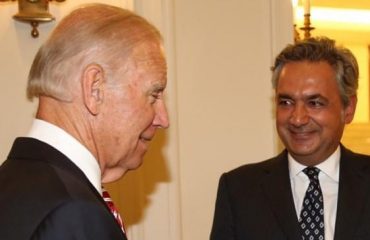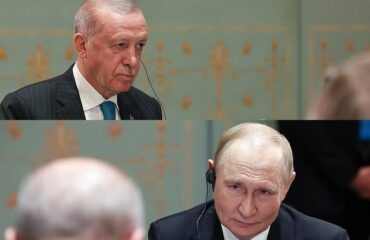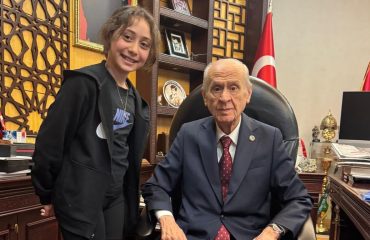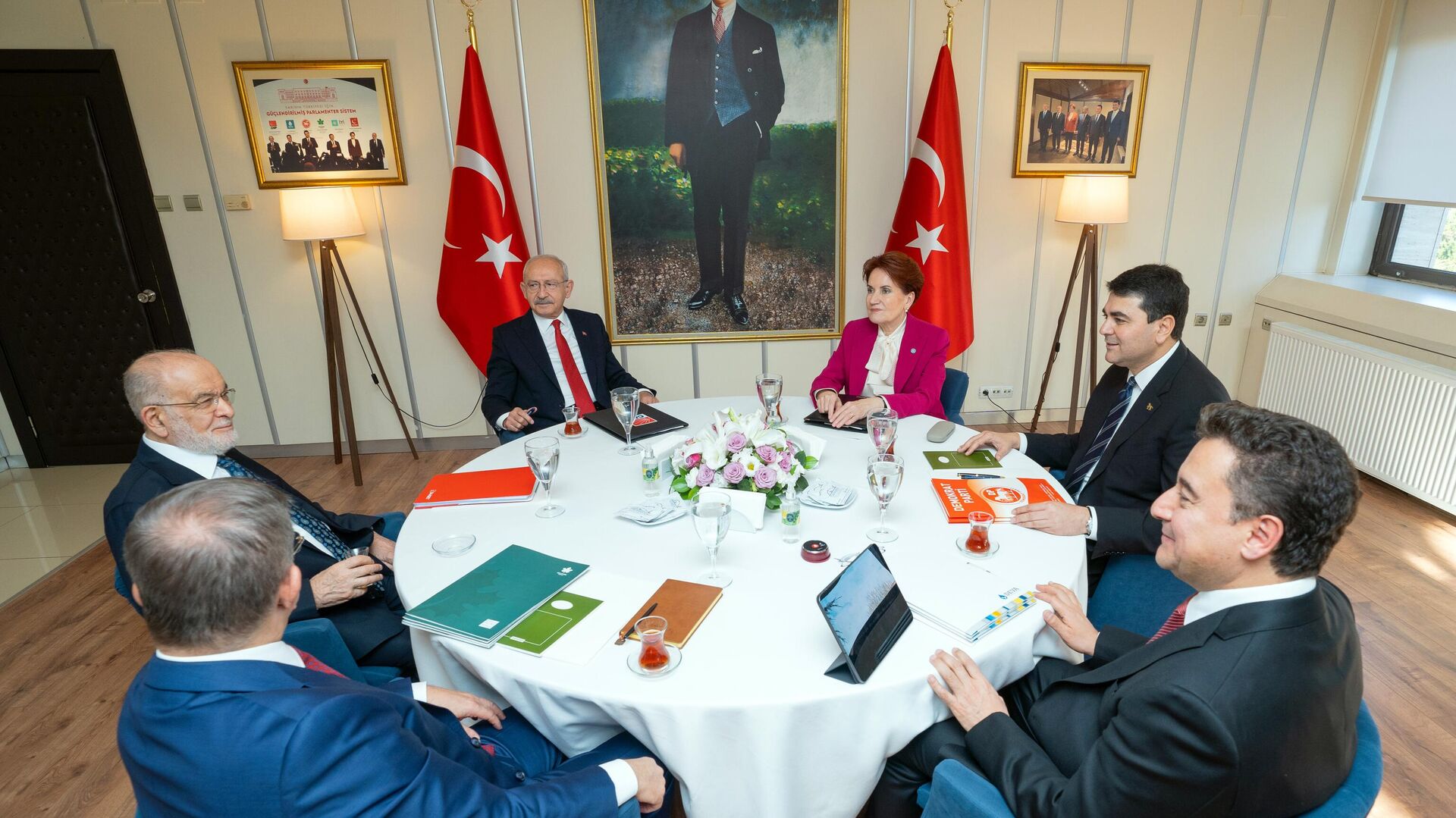
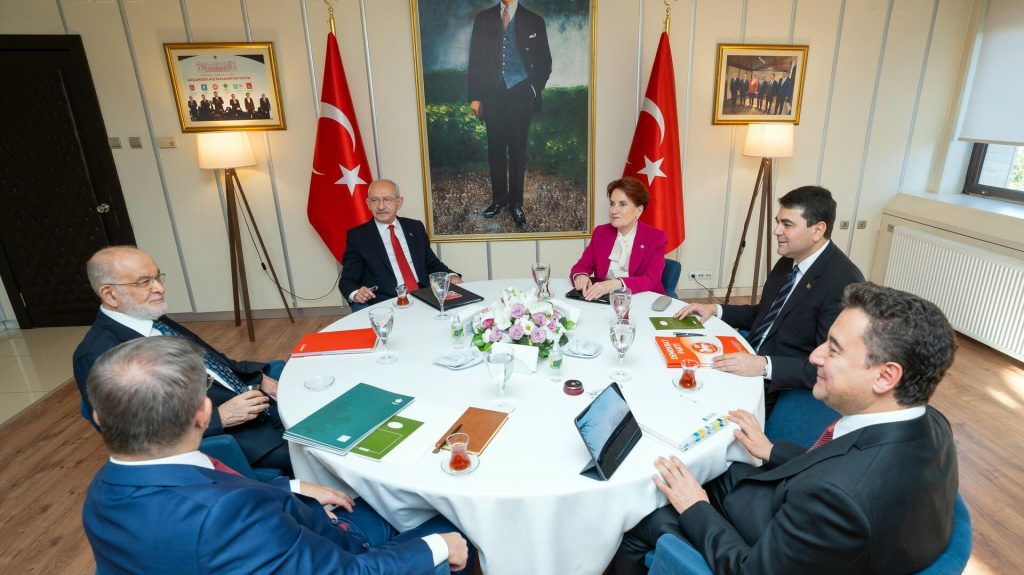
The AKP government is asking for votes by instilling fear in people, telling “if we leave everything will collapse,” the opposition on the other hand started to say “fear not.” Democracy is a regime that rulers leave by elections, as much as come into power.
Fear Not! The election video released by the opposition Felicity Party (Saadet Partisi) on March 12 began with this word on the screen.
The date is the 102nd anniversary of the adoption of the National Anthem by the Turkish Grand National Assembly.
The anthem, written by Mehmet Akif Ersoy and composed by Osman Zeki Üngör with the dedication “To Our Heroic Army”, begins with the same word: Fear Not!
It was not yet clear whether the war waged by the national forces under the leadership of Mustafa Kemal Atatürk against both the invading foreign armies and the collaborators of the invading armies in the Ottoman Dynasty, would be won.
Let alone the Western Front occupied by British, Greek and Italian armies, or the Southern Front occupied by French armies, the Eastern Front occupied by Armenian and Georgian armies had not yet been closed. On October 13th, it was months before the Treaty of Kars was signed with the fledgling Soviet Union and the troops on the Eastern Front were shifted to the Western Front.
Inside, there were British-backed rebellions of those whose grandchildren would later say, “I wish the Greeks had won so that the Caliphate would not have been abolished”, or those whose grandchildren would later stand prayer with the US Sixth Fleet and incite religious youth against revolutionary youth.
The people, tired of one war after another, were in fear. The Warrior Assembly was telling the people “Fear not”.
Those who said Fear not and those who spread fear
The First Assembly, the Founding Assembly, knew that in order to unleash the power of the people in fear, it was necessary to first remove the fear spread by the Ottoman Palace, the puppet of the invaders, from the hearts and minds.
The palace was spreading the fear that if the Sultan left, the country would be divided and religion would be lost. The parliament was saying that if the Sultan left, unity would be achieved. Independence was achieved, the Caliph Sultan Vahdettin found the solution to escape with the British fleet and neither the country was divided nor religion was lost.
Today, society is in a similar polarization, though not as severe as it was a century ago.
On one pole are the generators of fear; they want to continue their existence by instilling fear in people’s hearts and minds. It is as if Turkey, which has survived and grown stronger in these lands for nearly a thousand years under much worse conditions, will be divided, the state will collapse and religion will be lost if the current political power loses the elections.
The newly formed pole says “Fear not!”. The state will be strengthened by the end of the looting of public resources by an oligarchy, the country will not be divided, it will survive by expanding rights and freedoms, and what will be lost will not be freedom of religion and belief, but the immoral impunity of the merchants of religion.
Two partnerships of moods
It is not a coincidence that ideologically dissimilar parties like CHP, Saadet Partisi, İYİ Party and HDP give the same message of “Fear Not” to their voters. It is a common mood. Large and small parties, associations and trade unions are making efforts to ensure that this mood is shared from the big capital owners in Istanbul to the grocery store owners in Diyarbakır.
Likewise, other large and small parties, associations, and unions are working for the continuation of the AKP’s twenty-odd years in power. It is this common spirit that unites the AKP in the same alliance with the MHP, the BBP, which has a nationalist-Islamist line; the Vatan Party of Doğu Perinçek, a former Maoist; and Hüda-Par, a supporter of Kurdish Hezbollah.
To be able to say that they will leave as they came
“Fear not” applies to everyone who cannot get the share they deserve from the current system. For this reason, the ruling front cannot accept and digest the fact that the Saadet Party with its Islamist roots, the Deva Party with its conservative base, the Future Party, the secular right and nationalist IYI Party and the Democrat Party are on the same side as the CHP, which they have turned into a bogeyman for years.
There is no reason for young people who have lost exams because of stolen questions and who have been victimized by losing even if they won to be afraid of change; or the judge who is being investigated for not ruling the way he was asked to; the civil servant who cannot be promoted because he does not sign arbitrary decisions; the worker who is forced to live with wages below the poverty line; the unemployed; the diplomat, officer, or policeman who suffers injustice; the artist who is condemned to poverty for not kowtowing to the government; the student, the teacher, who resists the emasculation of their university…
What happens if those who say “fear not” don’t keep their word?
If they do not, they will leave. If they come to power, they will leave without trying to capture the hearts and minds of the people with the fear that “if we leave, the state will collapse, the country will be divided, and religion will be lost”.
That is the point. It is the comfort of being able to say, “They will leave as they came”.
Democracy is not the name of a regime that one comes to power through elections; it is the name of a regime that one leaves power through elections.
